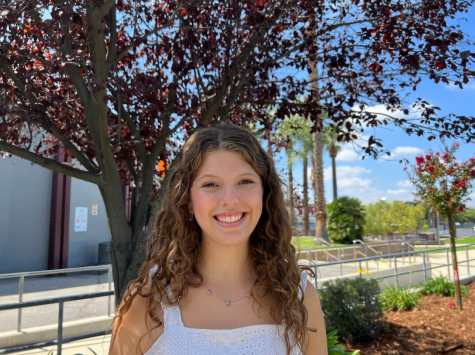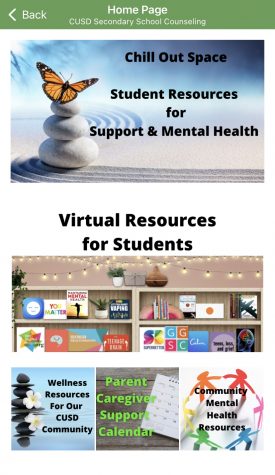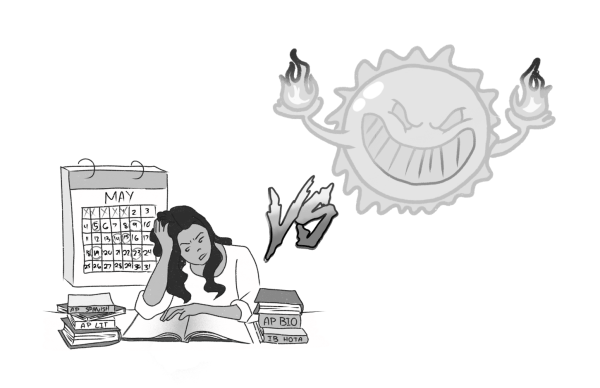Supporting CHS student mental health during online learning
Attending school in isolation for over a year has brought unique mental health challenges to students. Going into the 2020-2021 school year, CHS’ top priority was to develop online mental health support systems that can help students while in distance learning. While these new resources were created with the intent to be used during online schooling, many have proven to be supportive for student’s mental health, and may continue to be offered when fully in-person schooling resumes. The online school resources appear to have become a crucial first step as CHS evolves into a more supportive environment for students’ mental health.
To simplify the process and ease the anxiety of reaching out for mental health support, in February all students gained access to the CUSD Secondary School Counseling course on Canvas. The course’s user-friendly homepage is composed of several different buttons that guide students to different mental health resources. The “Chill Out Space” button takes students to an interactive virtual classroom, where students can sign up for group or one-on-one discussions with a mental health professional, and view a list of coping skills. Those interested in joining a support group fill out a short survey where they specify what areas they are struggling in; whereas students who prefer individual counseling will be guided towards the mental health provider service, Care Solace, which will connect them to local mental health professionals that specialize in their needs. The “Library” button leads to another virtual classroom, where students can access digital books online resources, such as guided meditation, self-care tips, and how to cope with loss or heartbreak. Other homepage buttons lead to other wellness resources for the CUSD community, and a calendar of events caregivers can attend for support.
Over the summer, while CHS staff was organizing a structured schedule for distance learning, many parents and students communicated their concerns relating to emotional support. Many worried about how students would be affected by long-term isolation, anxiety about the future, and new responsibilities, such as working an after-school job or supervising siblings. To address these concerns, CHS staff began developing a resource that would allow students to receive needed support.
“We know that there is a lot of additional pressure on students, so we wanted to create something that had never really been done before to offer support to students,” Assistant Principal Dr. James Mitchell said. “That’s when we started talking about the idea of Wolf Den, a class that won’t put any stress on students, and will offer support.”
Students are now very familiar with Wolf Den, a half-hour class that meets every Wednesday morning. During Wolf Den, students meet their assigned teacher and complete a lesson on Nearpod (an interactive slideshow) created by staff members, relating to coping skills for mental health or improving productivity and social awareness. Additionally, it serves as time for students to communicate any questions or concerns they may have to a staff member. While some students enjoy the lessons and shortened school day, many find Wolf Den to be dull and repetitive,
“We know it’s not perfect,” Dr. Mitchell said. “We’ve heard from some students it can become redundant, but it’s a good place to start.”
Though whether school next year will be fully in-person is still unclear, staff have begun developing possible new bell schedules for the next year. If possible, some of the aspects of online learning that have proven to be useful may be worked into the schedule, including a concept similar to Wolf Den. Additionally, the block-type schedule that has been used this past year may be adapted as the new norm, as Dr. Mitchell reports that students and teachers have expressed that a block schedule being far less stressful than all classes meeting every school day. Staff also have to be mindful that by the 2022 school year, a bill approved last year will require all California high schools to begin no earlier than 8:30 in the morning. None of these developments are set in stone, as the future of the pandemic remains uncertain, and staff and student opinions will be needed before finalizing any major decisions. Though the structure of the schedule is still to be determined, it remains essential to staff that it will be supportive to student mental health and needs.
“An important question is if we do create a new schedule, whatever it may be, can we incorporate some of those mental health and social and emotional support ideas within that new schedule,” Dr. Mitchell said. “That’s definitely something we’re looking at.”
Though this school year brought unforeseen challenges to both staff and students, CHS has used this time to improve the mental resources offered, and to open the door to future expansions. Some resources need to be refined to reach their peak potential, but will ideally grow through student feedback. As time progresses, the staff hopes that CHS will develop into an emotionally supportive campus for all students.
Hello there! Our goal is to provide relavent, engaging journalism for readers of all ages. Your donation will support the student journalists of the Wolfpacket at Claremont High School, and will allow us to purchase equipment, print our monthly issues, and enter in journalism competitions. We appreciate your consideration!

Melina Tisopulos is a senior and the Editor-in-Chief of The Wolfpacket. Melina loves to write and intends on studying journalism or English in college....









